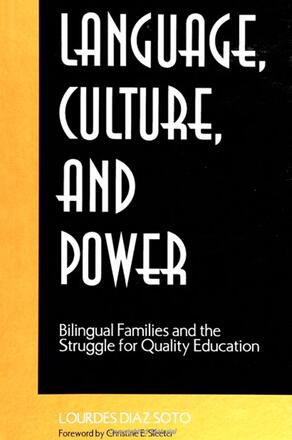
Language, Culture, and Power
Bilingual Families and the Struggle for Quality Education
Alternative formats available from:
Provides insights into the impact that eliminating bilingual education programs has on the lives of families and communities. Persuasively argues that linguistic repression is an unwise language policy for a democratic nation.
Description
Decades of educational research have documented the best practices and optimal educational experiences for language-minority children. Yet, the current conservative climate in our nation openly threatens bilingual education programs in schools and communities.
Over a nine-year period, the author collected data from bilingual families residing in "Steel Town" Pennsylvania regarding their educational experiences. In January 1993 the local school board and school superintendent decided to eliminate its nationally recognized, twenty-year-old bilingual education program. For the first time in the history of this community, the bilingual families organized themselves to speak out on the importance of these programs to their lives. The political struggle that ensued during the bilingual controversy in Steel Town led to asymmetrical power relations. The voices of the bilingual community leaders, bilingual educators, and, more important, the bilingual children, were disregarded by the decision makers.
Reviews
"In this excellent case study of the Puerto Rican community in an industrial city, Lourdes Diaz Soto exposes the painful conflicts surrounding education of language and ethnic minority children, and the resistance of many Anglos toward parents and community as sources of knowledge. As Soto argues clearly, this is a political issue as much as it is an educational issue. Further, the study reported here is far from being an isolated instance; it exemplifies far too much of life for communities of color in the 1980s and 1990s.
"It is this political dimension of bilingualism, bilingual schooling, and empowering education that Soto examines in this book. Soto wants the readers to feel outrage at the denigration this Puerto Rican community experienced, and to join struggles to maintain, develop, and expand gains in rights, access, and power that were made two decades ago. In so doing, she strongly affirms America's espoused ideals of freedom and democracy. She hopes that we will re-examine our own relationships with culturally diverse communities in our work contexts, and construct relationships based on respect, dialog, and power-sharing, both inside schools and in the wider society. Ultimately, this book passionately invites us to support and collaborate with oppressed communities, for the purpose of successfully educating children. In the long run, the interconnected futures of all our children is what is at stake. " -- from the Foreword by Christine E. Sleeter